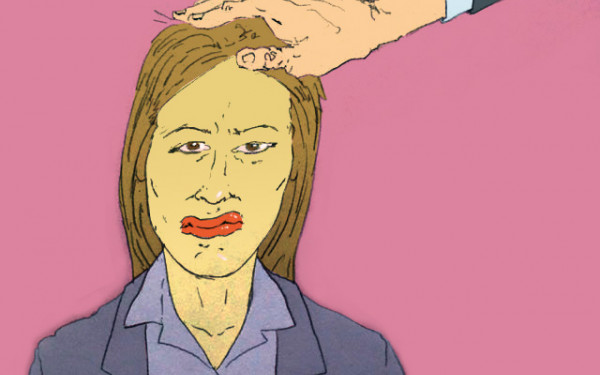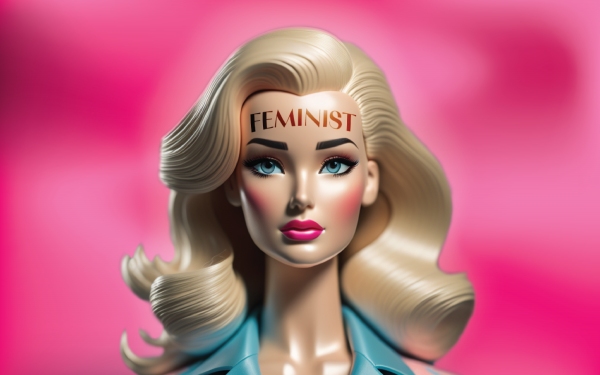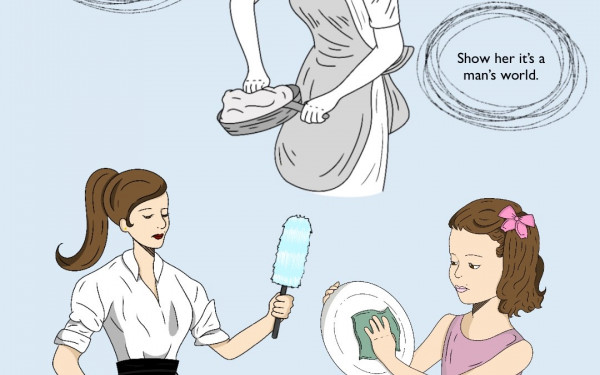The Room Full of Phonies
The Room Screening Audience More Misogynistic Than the Movie
Last Sunday I was lucky enough to nab one of the few tickets for the screening of everyone’s favourite B-movie, The Room.
This wasn’t a normal showing that you might find at some underground theatre. The jack-of-all-trades writer, director, producer and main character Tommy Wiseau was to make an appearance alongside co-actor Greg Sestero.
As the two continue to ride the wave of fame as a result of this proclaimed “worst movie of all time,” their meet-and-greet events are continuously sought after and well attended. For those familiar with The Room and its eccentric cult following, this was a golden day.
If you’ve never seen The Room, I have to inform you that even after you watch it, you still won’t understand what it’s about. The inconsistent plot lines and unsynchronized vocal track speak for themselves.
Regardless of these peculiar aspects of the film, the plot goes as follows: Johnny, played by Wiseau, is living with his fiancée, Lisa. Lisa and Johnny’s best friend, Mark, begin a concubine relationship. A secret love triangle ensues and Lisa plans to leave Johnny for Mark. Of course, this drama is all Lisa’s fault—don’t worry, we’ll get there later.
I must admit that, like many others, I constantly have my guard up for chauvinism just as I always have a clever line planned out in my head to ward off any unwanted advances or an active middle finger ready in my pocket for a car full of bros who still think catcalling is funny.
But on March 23, when I schlepped to Namur metro station to get a glimpse of Tommy Wiseau’s unkempt mop-head, I wasn’t prepared.
I wasn’t prepared to feel unsafe. I wasn’t prepared to spend five hours on a Sunday “sucking it up” to anti-feminist chants. I wasn’t prepared to hear “because she’s a woman” jokes that stopped being funny before I started growing armpit hair.
I wasn’t prepared for Wiseau’s astonishingly misogynist script to stoop lower than it already had. I wasn’t prepared to have people of all genders chiming into this sexist nightmare. I wasn’t prepared to hear the crowd’s hyper-sexualized calls of “FUCK HER HARDER” echo through the cinema during the badly filmed sex scenes.
Most shockingly, I wasn’t prepared for the disappointment I felt after seeing many of my fellow Concordia students in the audience, openly and happily perpetuating this cycle.
I like to call this phenomenon Misogynist Gossip. It works much like a social situation between friends, in which all is superficially fine and dandy until one friend goes behind someone’s back to spill their true feelings about another.
In this case, sexist and misogynistic individuals (this could be the person you stand in line behind at the People’s Potato or that friend-of-a-friend who works at the bookstore) seek out situations in which they can blow off their proverbial anti-feminist steam. The Room fuels this fire.
The amount of sexist commentary from the audience was appalling, but it seemed justified, right? Because everyone was doing it! Because most of the time, you’re really good at being a decent individual, so can’t you just have this one day to show the world your discomfort with your fears of subordinate masculinity in an extremely sexist and uncalled-for manner?
It’s pretty easy to be a decent human being—you pretend to respect women and make everybody think you’re a feminist ally. “Oh no,” you say.
You’d never coerce me into anything non-consensual, because you’re a nice guy. And yet, Lisa was a disgusting slut who cheated on her fiancée with another man, and she deserved what she got.
She earned the degradation of the hundreds of people in that theatre, who justified the recurrent oppression of women in our chauvinistic and patriarchal society because they were yelling at a movie screen.
“But it was a joke, so it’s okay. It was only a movie.” You love women. You know some, and they’re really great. You were kidding. “Can’t I take a joke?” Sorry, nice guys. You didn’t fool me, or anybody.
This experience showed me how the plague of misogyny in our society rears its ugly head in many crevices of our lives. It reminded me how the world is not at a place where its citizens can appropriately comment on the oppression and demonization of women in movies and pop culture.
It reminded me of how I often feel held down by people who are not acknowledging how they are feeding into a system that oppresses them.
Instead, we are actively working against that change, because we’d rather recite the traditional sexist slurs spoken year after year at The Room showings instead of being honest with the urgency of its problematic nature.
My mom used to tell me that if I was being bullied, I should tell the perpetrator that sticks and stones would break my bones but words could never hurt me. She might have been right—I’m not hurt. I’m chronically pissed off.

_746_1050_90.jpg)
_600_832_s.png)

_600_375_90_s_c1.jpg)


